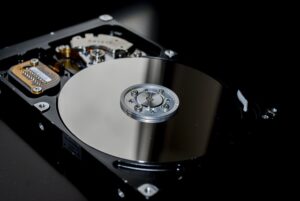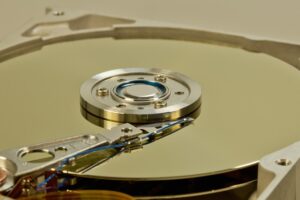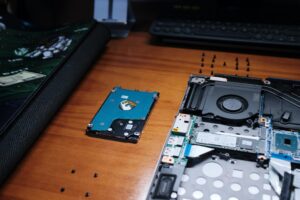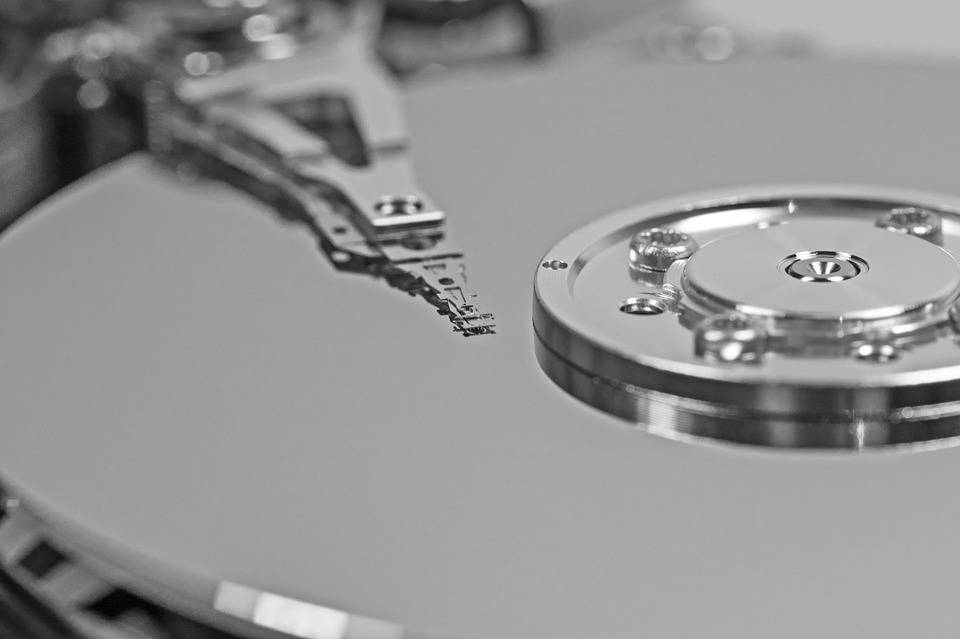
Need Hard Drive Repair?
Hard drive repair? What goes into that? Well, let’s start at the beginning.
A hard drive (often abbreviated to HD or HDD) is the part of your computer which stores your data. It’s defined as a “non-volatile” device, which is really just a nerdish way of saying that a hard drive will continue to store data even when your computer is turned off.
Your hard drive stores everything your computer needs to be useful, from its basic operating system files to the data which makes your software run, right through to your personal files such as photos and documents. In this article, we’ll give you the skinny on how a hard drive works, how you can tell if it is in trouble and some simple steps you can take to protect your valuable data.
But before we get into all that, we wanted to let you know that if you need a new or additional hard drive installed in your computer we are exactly the nerds you are looking for! We offer a full hard drive repair and data protection service and are just a phone call or a quick message away. Just call us at 1-800-919-6373 or fill out our contact form.
Three things you should know about your hard drive
1. Hard drives have come a long way
Okay, this isn’t essential knowledge but we think it’s kind of interesting! You might assume that hard drives are a relatively recent piece of tech, but they’ve actually been around quite a while. IBM developed the first commercial hard drive over sixty years ago, in 1956. It filled an entire room and provided its users with a whopping 5 megabytes of storage. For folks who dig numbers, that’s around .00015% of a typical thumbnail sized 32GB SD card you’d use to store photos in a camera. If you’d like to nerd out on more hard drive history, here’s a great read.
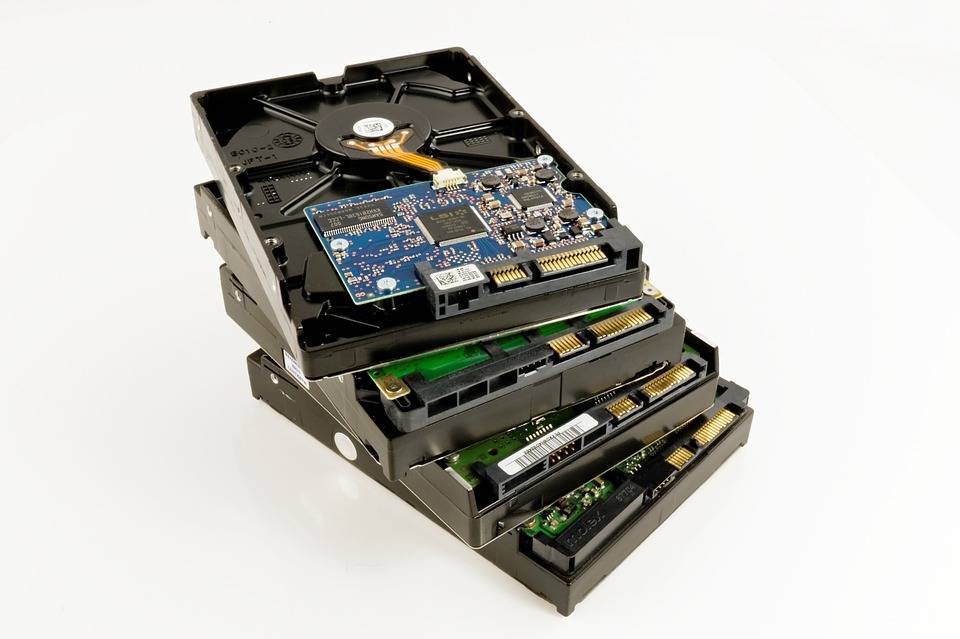
These days, there are two basic kinds of hard drive. The older kind consists of rapidly rotating disks that are covered in a magnetic material. Magnetic heads connected to a tiny moving arm are able to read and write data to these disks. It’s a surprisingly physical process. The newer kind are referred to as solid state disks (or SSDs). These newer drives have no moving mechanical components, instead of storing data through semiconductors. SSDs are faster and more reliable.
2. There are key vulnerable points in a hard drive’s life cycle
While hard drives are becoming increasingly reliable, they’re still surprisingly vulnerable to damage (especially the older kind). Eighty percent of electromagnetic hard drives will fail within four years. All hard drives are also particularly vulnerable to failure in the first year, owing to manufacturing defects.
3. When they fail, it’s really hard to get your data back
It is theoretically possible to recover some of your data if your hard drive completely fails, but you should never count on it. It really depends on the nature and severity of the damage. It’s also an extremely costly process. For this reason, it’s essential that your data is protected and backed up.
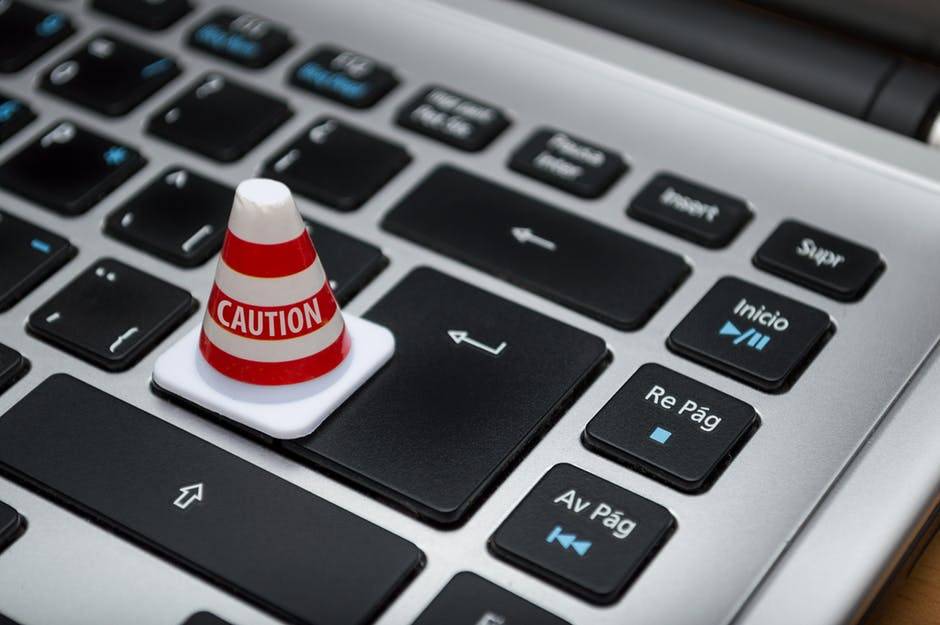
We can help with that. Nerds On Call can set you up with a data protection plan so that you can have peace of mind that your data is safe. Call us at 1-800-919-6373 or fill out our contact form for hard drive repair.
When should I replace my hard drive?
The answer here is pretty simple. You should always replace it before you’re facing a significant risk of losing your data. Here’s how you can tell.
Are you seeing any of these data warning signs?
If you see any of the following things happening to the files and software on your computer, there’s a good chance your hard drive is the culprit.
- Your computer is running slowly and stalls when you try to open files.
- You’ve opened files only to find them full of garbage text.
- Your computer sometimes runs a hard drive diagnostic program when starting up.
These red flags signal physical damage
If you notice any of the following it’s likely that your hard drive is physically damaged and complete failure may be imminent.
- Your hard drive is making rapid clicking noises
- When your computer boots you hear a high-pitched grinding or scratching sound
If you notice any of these red flags or if you just have a funny feeling that something is not quite right with your data storage, we recommend caution as the best strategy. If you’d like a second opinion, you can always contact us for advice.
Your life is on your computer – your work, your time, your memories. Don’t trust your photos, videos, or files to a hard drive that can fail.
Get 5TB of cloud-based storage that you can access whenever, wherever you need it for just $8/mo or 50% off your first year!
Protect your stuff with IDrive here – or contact us and we’ll get it set up for you.
You just need improved performance!

Even if your hard drive is working perfectly, you may find yourself struggling with limited storage size or slow data transfer speeds. This is especially likely if you own an older computer. Here are some problems which may be telling you it’s time to upgrade to a bigger, faster hard drive.
- You’re frustrated with data transfer speeds
- You are constantly being prompted by your computer to free up storage space
- You’re annoyed at how long it takes for your computer to boot up
A slow, small-capacity hard drive can be a real nuisance. If you want your data storage and transfer speed problems solved in one fell swoop we can set you up with a cutting-edge Solid State Drive. It’s quiet, fast and can provide a huge amount of storage. Drop us a line or call us at 1-800-919-6373.
Hard drive repair & how a nerd can help
If you’re worried your hard drive sounds like a jar of angry wasps, if you’re concerned about losing your precious family photos, even if you’re just fed up with constant file storage issues, we’re here to make your life a whole lot ‘betterer’ (even if that’s not a real word).
Here are three things we can do to help, right now.
1. We can set you up with a data protection plan
The fact is, hard drives fail. If this happens and you don’t have a backup plan, we can pretty much guarantee you’ll lose data. We can protect you against data loss by developing a backup plan for your computer. If you’d like to learn more, click here. Or just contact us directly.
2. We can run a full diagnostic and give you a whole-of-computer assessment
When it comes to damaged hard drives, a lot of people wait until it’s too late. Either they’re just not sure or they don’t want the unnecessary expense. At Nerds On Call, we offer a full diagnostic service. We’ll come to your home and run a batch of diagnostic tests to find out for sure if there’s a problem. We’ll explain any issues in clear language and talk you through your options. The best part? The only charge you’ll get from us will be to cover our time costs. Click here to learn more.
3. We’ll replace your laptop or desktop hard drive for you
We can install a brand new, lightning fast, high capacity hard drive to your computer. We’re fast, we’re reliable and we have the nerdy knowhow to solve your hard drive issues without breaking a sweat.
Drop us a line or call us at 1-800-919-6373.
Is your hard drive running slowly?
